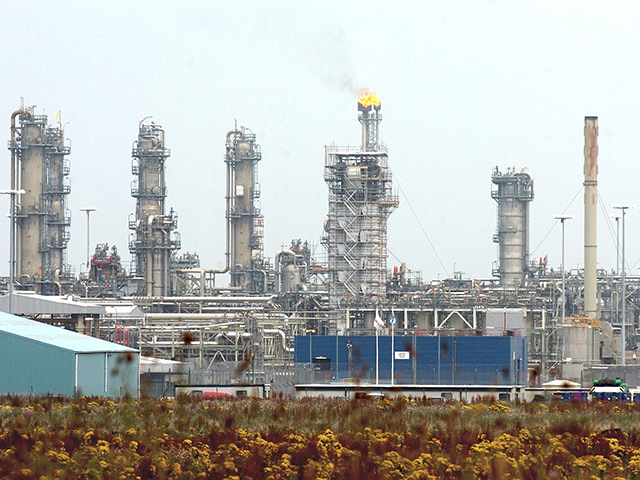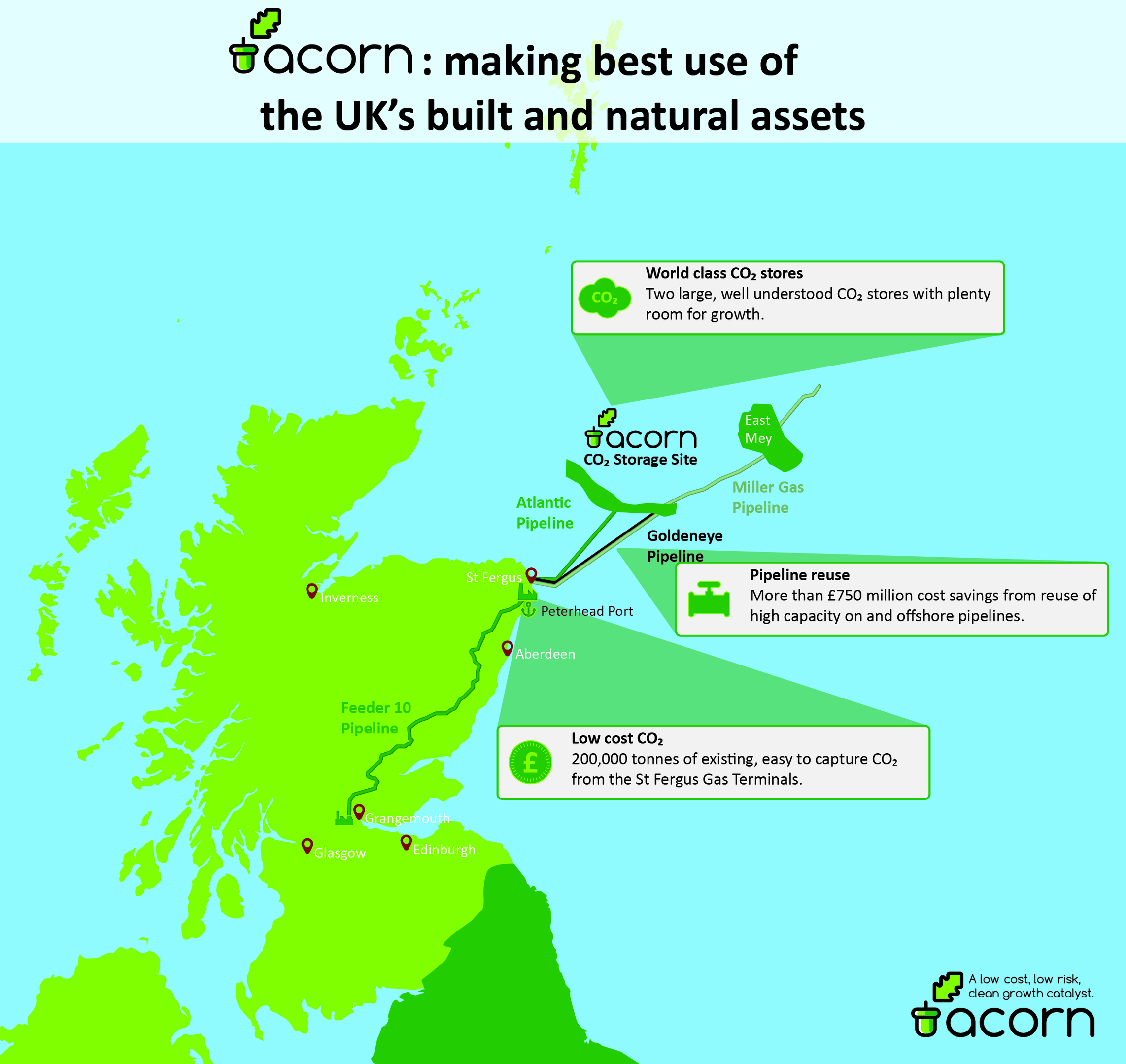
A north-east project could be the “stepping point” to begin large-scale use of technology to reduce carbon emissions in the UK, according to its manager.
Alan James is the managing director of Pale Blue Dot Energy, the firm behind the Acorn carbon capture and storage (CCS) project at the St Fergus gas terminal near Peterhead.
Last month a UK government taskforce highlighted the scheme as having “unique potential” to develop CCS, given its ties to existing North Sea infrastructure, such as pipelines, which could be reused.
It comes after a £1billion fund for a similar project at Peterhead Power Station was scrapped in 2015.
Carbon capture, storage and utilisation is the process of taking C02 emissions and storing them underground offshore, and in some cases reusing for other purposes such as creating building materials.
Acorn has already identified various pipelines that currently or have previously been used to serve the North Sea which, with funding, could be repurposed for CCS.
Both the UK taskforce, as well as well as European agencies which have recently provided some funding, have identified Acorn’s proximity to Peterhead harbour as another advantage.
The deepwater port could be used for ships from other North Sea industrial centres to offload the C02 to be stored underground.
Various groups, including energy minister Claire Perry, have described CCS as being “vital” if the UK is to meet carbon emission reduction targets by 2050.
The issue remains a constant theme, with reports earlier this week that harmful emissions could result in a global temperature increase, leading to a cascade of climate events which would thrust the earth into a “hothouse” state.
Now Mr James is hopeful further support could be attained from the UK Government as it looks to set out its plans to roll out the tech later in the year.
He said: “The CCS environment is evolving at just the right pace for Acorn to be considered as potentially a really good stepping point to kick that whole thing off.
“We’re busy talking with industry and engaging interest and there is a growing interest now from industry in reengaging with CCS post-2015.”
In 2015 Westminster was running a competition for £1bn funding for CCS projects, with the Peterhead Power Station development backed by Shell and SSE being considered the front-runner when the funding was pulled at last minute.
With the UK government to once again set out its plans for CCS technology later this year, Mr James doesn’t believe it is looking for another competition-style set up.
“I think the key thing that the industry has responded to has been the enthusiasm of the energy minister, there’s a motivation there which has helped industry reengage with the process.
“We’re keen to support the agenda generally. If that can be supported through Acorn, then that is fantastic.
“I get the general impression that the last thing the UK Government actually wants is another 2015-style competition process but they’d be perhaps looking for regions to come up with concepts, ideas and consortia of industry and even local government to put together plans that could be financed using a public/private approach.”
One of the big challenges with this idea, according to Mr James, is the prospect of getting the oil and gas supply chain on board who are still struggling as a result of the oil downturn.
However he’s hopeful the tide is turning back in CCS’ favour.
“I think the traction that we’re seeing with government and the forward-process that we’re looking at now, particularly towards the end of the year when pathways will be laid out, I think that timetable will become much more real.
“Once people start to understand there’s a project there that has some significant potential, then people can start to believe there’s a real commercial opportunity here for us in the north-east.”


